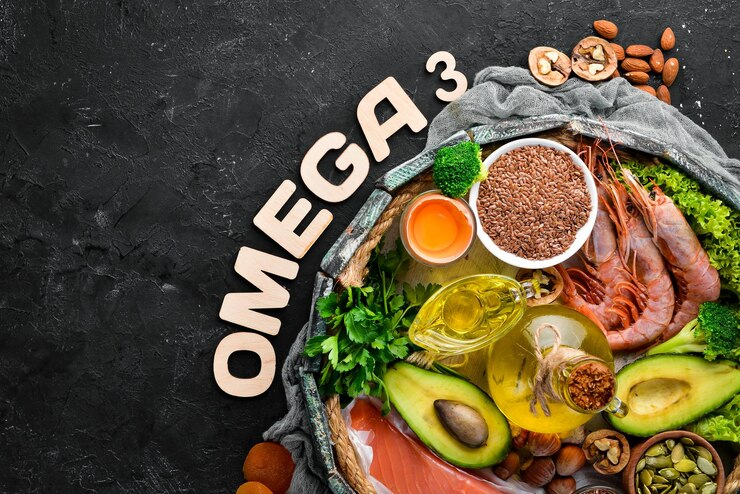How can a Vegan get Omega 3, 6, and 9 supplements?



The increasing rate of chronic diseases caused by excess inflammation has fortunately resulted in the conscious eating of food for many individuals. An increasing number of people today are turning to healthier plant-based foods that can also cater to their biological needs while not involving any animal products. There are many benefits to a vegan diet, as it can provide you with the essential nutrients and antioxidants you need in your everyday diet. But how can you get adequate levels of omega fatty acids in a plant-based diet?
Read more: Benefits of a vegan diet.

Known for its benefits in brain and heart health, omega-3 fatty acids are polyunsaturated fatty acids (PUFA) that have their first double bond on the third carbon atom. Eicosapentaenoic acid (EPA) and docosahexaenoic acid (DHA) are two forms of omega-3 fatty acids that are available from animal sources like sardines and salmon. Alpha-linolenic acid (ALA) is the only form of omega-3 fatty acids that may be obtained from plant sources. Plant-based omega fatty acids are later converted into EPA and DHA once they enter the human body. As ALAs cannot be formed in the body, Omega-3 fats obtained from plant-based ALAs are known as essential fatty acids and need to be consumed in adequate amounts to have their optimum level in the body. You may consider taking the Welzo Omega 3 and 6 Blood test to measure your Omega index and make sure you have adequate essential fatty acids in your body.
Vegan Sources of Omega-3 Fatty Acids include:
Chia seeds
Flax seeds
Hemp seeds
Pumpkin seeds
Soybean oil
Canola oil
Seaweed
Algae
Walnuts
Legumes like Edamame and kidney beans
Leafy vegetables like spinach
Read more: 7 ways to avoid deficiencies on a vegan diet.
Omega-6 Fatty acid is also an essential fatty acid that's classified as polyunsaturated fats. The number 6 indicates the position of the double bond linked to the 6th carbon of the hydrocarbon chain. Linoleic acid is a plant-based source of omega-6 fatty acids, while arachidonic acid is an animal-based source of omega-6 fatty acids. Linoleic acid is converted to arachidonic acid in the body, but the body cannot make linoleic acid on its own and it is therefore classified as an essential fatty acid. Although beneficial in managing chronic diseases, one must be careful to maintain a healthy omega 3 to omega 6 fatty acid ratio in their diet. Your omega-6 fatty acid consumption should never exceed the amount of omega-3 fatty acids you consume.
Vegan Sources of Omega-6 Fatty Acids include the following:
Olive oil
Coconut oil
Sesame oil
Palm oil
Groundnut oil
Evening Primrose Oil
Seeds
Nuts
Grains
Leafy vegetables
Read more: What is a vegan keto diet?
This is a monounsaturated fatty acid with the presence of a double bond on the 9th carbon atom. Although the body can form it on its own, you still need to additional dietary intake of omega-9 fatty acids to maintain optimum levels of omega-9 fatty acids. It is therefore known as a partially essential fatty acid. Oleic acid, erucic acid, and mead acid are some available omega-9 fatty acids. Omega-9 fatty acids are slowly gaining popularity for their anti-inflammatory effects.
Vegan sources of Omega-9 fatty acids include:
Olive oil
Canola Oil
Avocado oil
Almonds
Hazelnut
Macadamia
Omega fatty acids are an essential part of a balanced and wholesome meal. They are healthy fats that are categorized under the unsaturated fatty acid group because of the presence of at least one double bond in their hydrocarbon chain. The omega indicates the number of the carbon atom to which the first double bond is attached. Depending on the number of double bonds, they are further grouped into monounsaturated fatty acids (e.g. omega- 9 fatty acids) that contain only one double bond in their chemical structure and polyunsaturated fatty acids (e.g. omega -3 and omega-6 fatty acid) that contain more than one double bond in their hydrocarbon chain.
Check out our vitamins and supplements hub to learn more about nutrition and avoiding dietary deficiencies! Read here.
Plus get the inside scoop on our latest content and updates in our monthly newsletter.